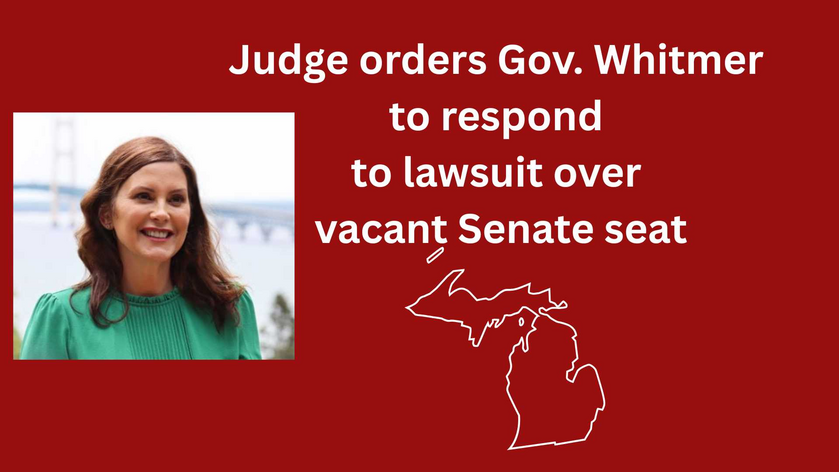LANSING, Mich. — A Michigan Court of Claims judge has ordered Gov. Gretchen Whitmer to respond to a lawsuit accusing her of violating the state constitution by failing to call a special election to fill a vacant state Senate seat.
The order, issued this week, sets a hearing date in the case brought by residents of Michigan’s 35th State Senate District. The plaintiffs — voters from Bay, Midland and Saginaw counties — argue that Whitmer’s inaction has unlawfully left about 270,000 residents without representation for more than 200 days.
The seat has been vacant since Jan. 3, when then-Sen. Kristen McDonald Rivet resigned to join the U.S. House of Representatives. The Michigan Constitution says the governor “shall issue writs of election to fill vacancies in the senate or house of representatives.” The plaintiffs contend that the language is mandatory and that Whitmer has no authority to delay indefinitely.
Get Exclusive breaking news updates by signing up to this free newsletter if you haven’t yet done so. Also, consider becoming a paid subscriber to help support my independent journalism.
They are seeking a writ of mandamus — a court order requiring a public official to perform a clear, nondiscretionary duty — along with a ruling declaring the governor’s inaction unconstitutional and compelling her to schedule a special election immediately.
Historically, governors from both parties have acted quickly to fill legislative vacancies, often aligning special elections with existing election dates. In 2023, Whitmer called two House special elections within days of resignations. Under former Gov. Rick Snyder, vacancies were typically filled within months.
The delay has drawn bipartisan criticism, including from Attorney General Dana Nessel, Lt. Gov. Garlin Gilchrist II, Senate GOP Leader Aric Nesbitt and local officials. The Midland City Council passed a resolution urging Whitmer to act, and editorial boards and national media have also raised concerns.
The lawsuit argues the prolonged vacancy undermines democratic representation by excluding the district from votes on budgets, education, infrastructure and other key issues. The court’s decision could determine whether Michigan governors have broad discretion over the timing of special elections — or a constitutional duty to move quickly.
Gov. Whitmer or her office have not responded to my request for a comment.




















